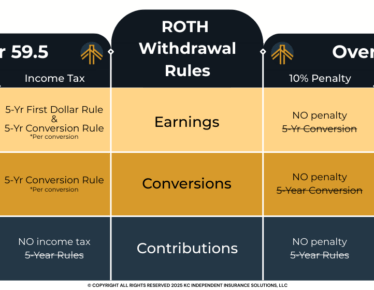3 Key Factors We Use to Evaluate Medicare Advantage Plans with Our Clients
When it comes to choosing the right Medicare Advantage plan, we understand how overwhelming it can feel. With over 20 years of experience working with these plans, we’ve noticed that—regardless of the insurer or location—all Medicare Advantage plans generally boil down to three common categories. Once you understand those, along with a few core Medicare terms, you’ll be in a strong position to make an informed decision year after year, without second-guessing your choice.
Let’s walk through the key steps we take with clients to help them find the plan that supports their healthcare and financial needs.
Step 1: Understand Medicare’s “Language”
Before we even look at plans, we always take a moment to review Medicare terminology with our clients. Medicare has its own set of acronyms that can be confusing. Here are the core terms we make sure you understand:
- HMO (Health Maintenance Organization): You’ll generally need to stick to a defined network of doctors and may require referrals to see specialists.
- HMO-POS (Point of Service): A more flexible version of the HMO; you can see specialists without referrals, but still within the plan’s network.
- PPO (Preferred Provider Organization): Offers access to both in- and out-of-network providers. You’ll save money staying in-network, but have the flexibility to go outside of it.
- C-SNP (Chronic Special Needs Plan): Designed for people with certain chronic conditions such as diabetes, heart disease, or COPD.
- D-SNP (Dual Special Needs Plan): For those eligible for both Medicare and Medicaid. These plans are tailored to coordinate your benefits across both programs.
We also clarify how Medicaid (or Medi-Cal in states like California) works and what it means to qualify for a D-SNP plan. Once you’re confident in the terminology, we can evaluate plan options in a much more meaningful way.
Step 2: Understand the Three Plan Categories
All Medicare Advantage plans fall into one of three strategic categories. Each has distinct pros and cons, which we weigh carefully with each client.
New Medicare Advantage Plans in Your Area
These include both small, local insurers and big national names like Aetna or UnitedHealthcare that are newer to your specific county.
Pros:
- Often offer very low co-pays and low maximum out-of-pocket limits—sometimes as low as $500.
- Tend to include a wide range of perks: dental, vision, gym memberships, groceries, transportation, and even pet services.
- $0 monthly premium is standard.
Cons:
- Smaller doctor and hospital networks—and those networks may still be developing.
- Customer service, billing, and claims systems may still have some “kinks.”
- Some of these plans overextend financially and exit the market after a few years.

Advice from KCIIS
If keeping your monthly healthcare costs low and maximizing added benefits are your top priorities—and you’re comfortable with a smaller provider network—this may be a good option. But we always verify that your specific doctors and hospitals are in-network before enrolling.
Established Medicare Advantage Plans
These are long-standing Medicare Advantage plans that have been serving your area for years and have built strong provider networks.
Pros:
- Larger, more stable doctor and hospital networks.
- Reliable customer support and smoother billing systems.
Cons:
- Fewer extras and perks. For example, they may only cover preventive dental care rather than full coverage.
- Co-pays may not be as low as those in newer plans.

Advice from KCIIS
If provider access and network strength are your main priorities—and you’re okay with fewer bells and whistles—this might be the better long-term fit.
One-Stop Shop Medicare Advantage Plans
These are typically associated with healthcare systems like Kaiser or Sutter, where your primary care doctor, specialists, labs, and pharmacy are all under one roof.
Pros:
- Convenience—everything is centralized in one location, making care easier to manage.
- Often part of large, reputable health systems
Cons:
- Higher monthly premiums, often ranging from $30 to $90
- Typically, fewer auxiliary benefits are available, and you may need to purchase dental/vision separately.
- Higher co-pays in some cases.

Advice from KCIIS
If you value convenience, coordinated care, and being part of a comprehensive health system—and are okay with paying a bit more—this type of plan can be a great choice.
Step 3: Be Cautious When Switching from Medicare Advantage to Medigap
Before enrolling in a Medicare Advantage plan, we also help clients understand what happens if they ever want to switch back to Original Medicare with a Medigap Supplement. Most people don’t realize that:
- You may not be guaranteed Medigap approval if you try to switch later.
- There are three different Medicare enrollment windows, each with its own rules that affect your options.
For these reasons, we work closely with clients to weigh not only today’s needs but also how a plan fits into their long-term healthcare strategy.
Final Thoughts
Choosing a Medicare Advantage plan is about much more than premiums or perks. It’s about finding the right balance of cost, network, coverage, and convenience for your needs.
At our KCIIS, we walk clients through these three categories—New Medicare plans, established Medicare plans, and one-stop shop Medicare plans—and help compare side-by-side based on what matters most to you. That way, you can enroll confidently and avoid costly surprises down the road.
If you’re considering a change to your Medicare plan, let’s schedule a time to talk. We’ll help you make a decision that’s financially sound, medically practical, and tailored to your lifestyle.
Contact Us Get in Touch
Have a question or feedback?
Fill out the form below, and we’ll respond promptly!

By providing your name and contact information, you are consenting to receive calls, text messages, and/or emails from a licensed insurance agent about Medicare Plans at the number provided. You agree that such calls and/or text messages may use an auto-dialer or robocall, even if you are on a government do-not-call registry. This agreement is not a condition of enrollment.
Not connected with or endorsed by the United States government or the federal Medicare program. This is a solicitation of insurance, and your response may generate communication from a licensed producer/agent.



